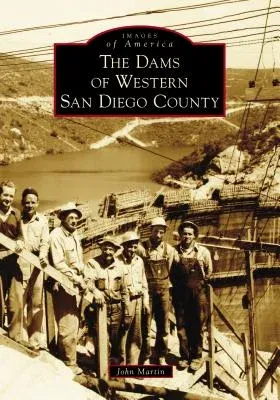John Martin
(Author)The Dams of Western San Diego CountyPaperback, 30 October 2017

Qty
1
Turbo
Ships in 2 - 3 days
In Stock
Free Delivery
Cash on Delivery
15 Days
Free Returns
Secure Checkout

Part of Series
Images of America
Print Length
128 pages
Language
English
Publisher
Arcadia Publishing (SC)
Date Published
30 Oct 2017
ISBN-10
1467127213
ISBN-13
9781467127219
Description
Product Details
Author:
Book Format:
Paperback
Country of Origin:
US
Date Published:
30 October 2017
Dimensions:
23.11 x
16 x
1.02 cm
Genre:
Western U.S.
ISBN-10:
1467127213
ISBN-13:
9781467127219
Language:
English
Pages:
128
Publisher:
Series:
Weight:
317.51 gm